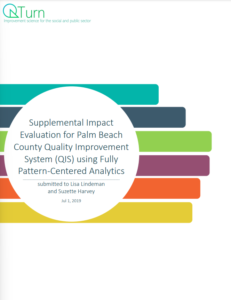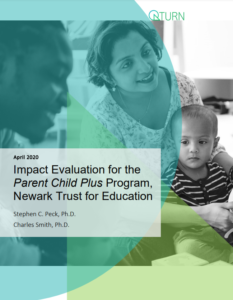Tag: youth outcomes
We sought to answer two specific questions about implementation and children’s SEL skill growth: What is the impact of QIS exposure on program quality (i.e., best practices, low staff turnover, great content), particularly for programs that have lower program quality at baseline? What is the impact of exposure to high program quality on student SEL skills?
The Quality-Impact-Equity Design and Methods (QDM) Toolbox was used to: (a) reconfigure existing measures for Parenting Practice Quality and Child SEL Skill to maximize reliability and validity for measuring socio-emotional skills and learning (SEL); (b) produce holistic profiles of parent and child skill at each timepoint; and (c) apply pattern-centered analytics to estimate impact and equity effects of the PC+
program as implemented in Newark.

